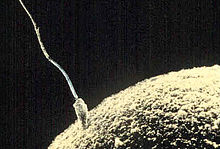 Humanae Vitae is online at the Vatican site, and the text highlighted below is © Copyright – Libreria Editrice Vaticana.
Humanae Vitae is online at the Vatican site, and the text highlighted below is © Copyright – Libreria Editrice Vaticana.
This section offers questions. People still ask them today. I will be asking a lot of my own questions in the text below. Not to worry: most lean to a widening of the scope of the documents.
Let’s read Pope Paul’s queries:
3. This new state of things gives rise to new questions. Granted the conditions of life today and taking into account the relevance of married love to the harmony and mutual fidelity of husband and wife, would it not be right to review the moral norms in force till now, especially when it is felt that these can be observed only with the gravest difficulty, sometimes only by heroic effort?
I like this statement. Men and women often struggle in a culture that shifts beneath their feet. Women’s liberation of the sixties and seventies left people of both sexes adrift at times. Long-entrenched roles were reconsidered, reaching into the heart of family dynamics, if not relationships.
I also like that Pope Paul recognizes “grave difficulty” and “heroic effort” on the part of many people.
A concession on the argument in favor of “totality” follows. What do you think?
Moreover, if one were to apply here the so called principle of totality, could it not be accepted that the intention to have a less prolific but more rationally planned family might transform an action which renders natural processes infertile into a licit and provident control of birth?
Can contraception (I dislike the inaccurate term, “birth control.) be used with liceity and prudence? That was probably the thinking of many moral theologians on the commission.
Could it not be admitted, in other words, that procreative finality applies to the totality of married life rather than to each single act?
Some people still argue for this totality. Having passed from the fertile stage myself (my wife and I not really ever having left it) raises a question on the final half of marriages. Have older couples passed from one form of “totality” to another? Have infertile couples been given a “pass” somehow? Do social acts such as adoption, foster parenting, grandparenting, mentoring complete the totality for us? And if they do, are Catholic married couples more or less obligated to explore responsibilities in these areas, whether or not they have borne children? Or is it enough for childless couples to prance free with their experience of monogamous sex? Or is something significant missing?
Let’s steer back to the common secular argument:
A further question is whether, because people are more conscious today of their responsibilities, the time has not come when the transmission of life should be regulated by their intelligence and will rather than through the specific rhythms of their own bodies.
Animals have their own methods of birth control up to and including infanticide. Some of these are natural and instinctive and are engaged by environmental factors. Are human beings somehow less than animals and at the mercy of our biology?
